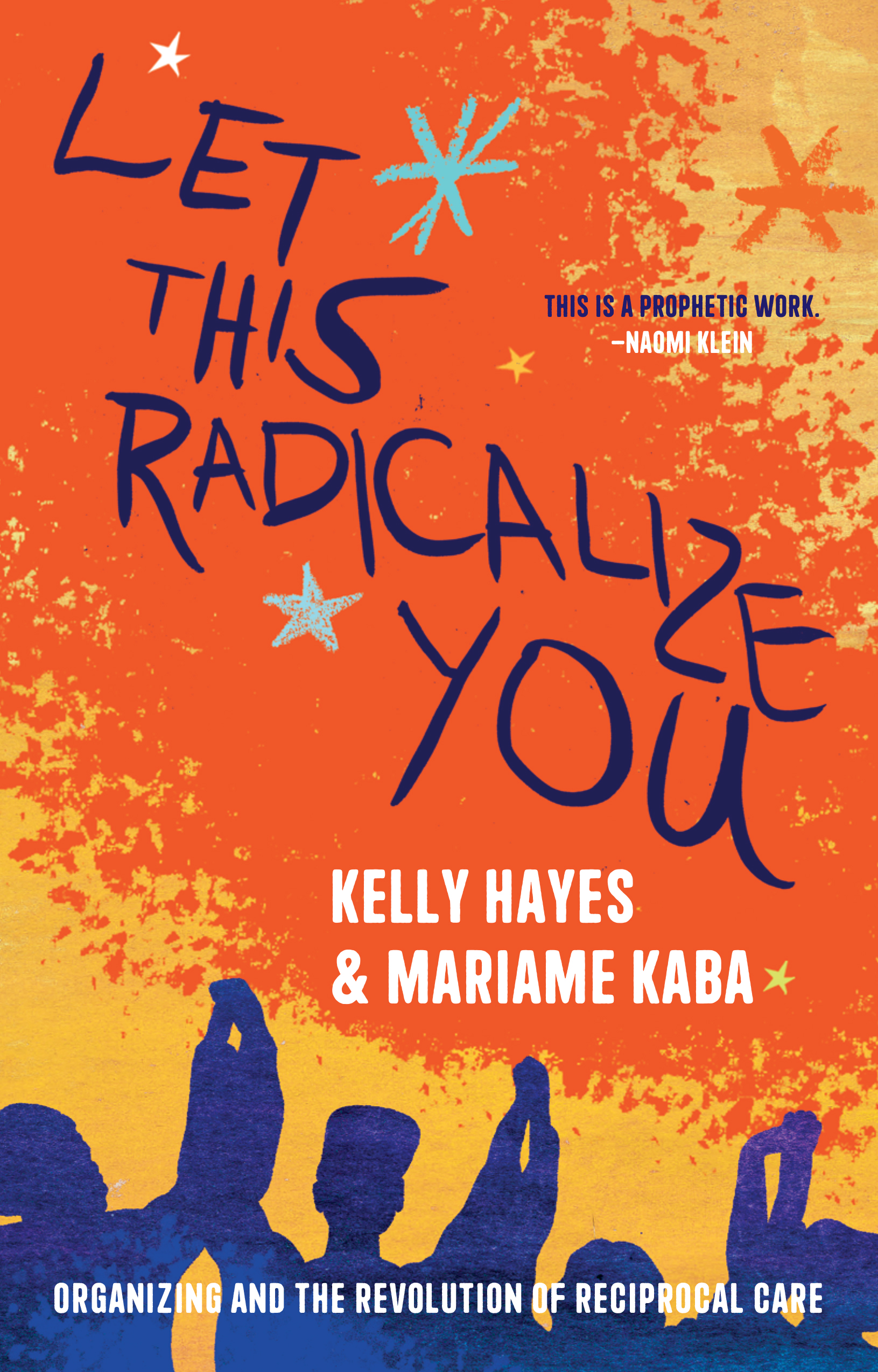It's so easy to criticize
Written by Lionir
It’s so easy to criticize. It’s harder to organize and take action
This quote from Danielle during the discourse around Aral and accessibility in Free Software - it really resonated with me. If you want to learn specifically about the Aral situation, I recommend reading what Jacky Alciné wrote:

I'll try to give this post a larger, encompassing idea than one which is aimed at free software.
It reminded me of this quote from the book "Let This Radicalize You" by Kelly Hayes and Mariame Kaba which I've unfortunately not finished reading yet. I'm leaving a link to get it from HaymarketBooks though I recommend getting it from your local library (they deserve the money much more than Amazon!).

In the introduction chapter, "We Can Only Survive Together", Kaba mentions an anecdote that really stuck with me. It stuck with me because I know I am one of those people who has an habit of criticizing others. She says:
In retrospect, I know the reason I was so enthralled was because it was exciting to imagine myself as a revolutionary. My untested ideas were always brilliant around them [the butterflies]. They [the butterflies] were fun to be around because they rarely participated in the actual hard work of organizing, and they had a lot of criticisms of those who did that work.
While others were going door to door [...], the butterflies were lamenting the fact that "the people" were not being sufficiently engaged in "our" struggles. None of them ever went door to door.
[...]
Then, one afternoon I won't soon forget, as I spouted off about someone or other being "a sellout," one of my mentors asked me a question that helped shape the trajectory of my activism and organizing.
"What have you built?" he asked. I must have looked perplexed. So he asked me again, "What have you built?"
"I don't know what you mean," I answered.
"Come back and talk with me when you've figured it out," he told me.
~ Mariame Kaba, in the book "Let This Radicalize You", page 9.
This really struck a chord with me because in my time organizing as a student, I spent so much time just spouting my ideas, criticizing others and not nearly enough actually talking to people. I know this yet it remains pretty hard for me.
I still fall in the trap of going around with ideas rather than doing the hard work. That said, I have to overcome that. I have to build. I've been getting better and I think many people could still do better.
Though I don't want to name people right now, there are many people who spend most of their time criticising the work of others while doing very little work of their own. The thing is, while we might recognize this problem, tons of people in our communities love to empower those voices. Criticism is important - don't get me wrong. However, these people rarely, if ever, actually end up working to solve these problems - they tend to amplify them by seeding division.
Instead of seeding division, their efforts (if genuine) could be aimed at highlighting problems while also trying to provide solutions and most importantly, following through with those proposed solutions.
Though this advice serves people with big microphones, there's a bigger question at hand.
What the hell can we do about it?
When someone fans the flames and they're simply wrong - just don't bother. Giving them attention is giving them legitimacy. If you really feel like there is something worth addressing, do it once in a concise way - don't give them more. There's better ways to use your time (you could read that book you've been putting off, watch a show, work on a personal project!).
If you see someone that keeps creating discord (no, not the chat service) and you follow them, ask them what they're doing about it.
- Are they actually working towards a solution?
- Are they building up people to work on the problems they're talking about or are they tearing those people down?
Usually, answering these questions can help us see where their intentions lay. In the best world, they'll realize that they're approaching the situation in a destructive way.
Saying things like that completely sidesteps something important - the protesters are right about this issue. Yet, through tone policing, the conversation shifts.
Tone policing usually affects marginalized groups more.
That parenthesis ending up a bit longer than I expected. Anyways, right - solutions.
Well, this might sound obvious but we should highlight the work that we like, give them a thanks! Yes, I know, crazy.
We can also try to build initiatives or try to help in the ways we can.
My point is - instead of tearing people down, we should try to build our own initiatives, try to encourage people, try to.. make things better.
